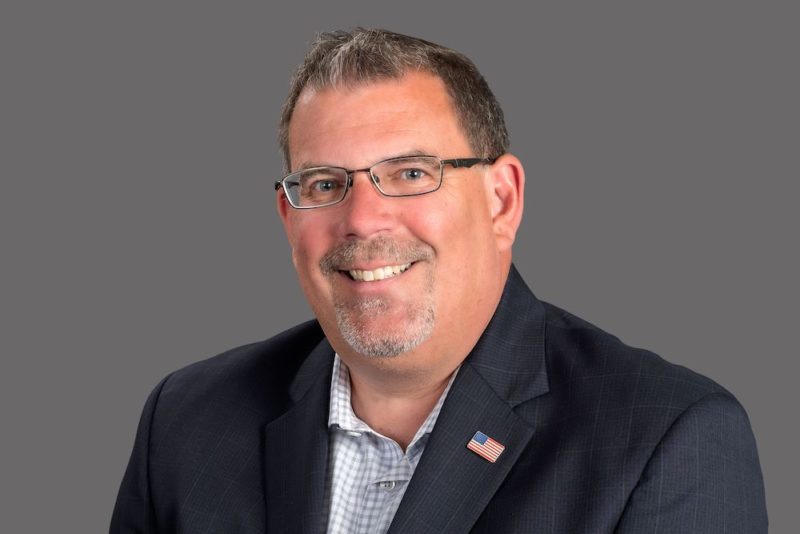Editor’s note: The winner of the Chief Officer Awards Private Company CFO Award announced June 17 is Bruce Crowell of SOSi.
On June 17, WashingtonExec will be virtually celebrating the most impactful and innovative C-suite executives in government and industry. These chief officers work in technology, security, data, operations, finance, business and more, excelling on both sides of the government contracting sector. Our team of judges have chosen the finalists for the inaugural Chief Officer Awards, so before we announce the winners during the event, we wanted to get to know the finalists a bit better. This Q&A series highlights their careers, successes, proud professional moments and notable risks.

Chuck Hicks is chief financial officer at NCI and a finalist in the Private Company CFO Award category.
What are you most proud of having been a part of in your current organization?
I just recently celebrated my 1-year anniversary with NCI. Upon joining the company, I immediately started playing a major role in driving NCI’s organizational transformation, both internally and externally. This includes being directly involved with our customers, as well as fostering relationships with others in our industry and with employees across the enterprise.
From day one, I have been a proponent of cultivating a unique corporate culture. I am a strong advocate for harnessing new technologies, embracing change, and driving optimal business performance and real-time decision making, all of which provides opportunities for competitive advantage and growth.
Innovation is a core part of NCI’s culture and a mindset that drives how we approach solutions and services for our federal customers every day. I really enjoy engaging with our government partners, particularly telling the NCI story of how artificial intelligence and digital transformation capabilities can transform their agencies and advance their missions.
It is exciting to be part of a management team that is “all in” on bringing forward-thinking technologies and best-in-class solutions to better support our government customers’ missions and our organization itself.
What’s one key thing you learned from a failure you had?
Failure is expected and should be embraced — without failures, we would never improve. Further, if we don’t experience failure, there is no basis from which to compare our success.
What’s the biggest professional risk you’ve ever taken?
At the time, I felt the biggest professional risk I had ever taken was leaving public accounting after six years. In actuality, this turned out to be the best thing I could have done, as it opened doors to different industries, which eventually led to government contracting.
What I love about the GovCon industry is it got me back to doing work in support of very important missions. As a former member of the U.S. Navy, it is hard to replicate the personal rewards of serving our country. But in some respect, working in this industry is very similar in that you’re driven to help government agencies by supporting their operations and advancing their missions.
Looking back at your career, what are you most proud of?
I am most proud of the teams I have helped build and been a part of. The strength of these teams has been beyond exceptional and the relationships created are very powerful and precious.
Because of my background as a hospital corpsman and psychiatric counselor, I have a people-oriented leadership style — which I believe is important and necessary for organization’s to build a positive, engaging and successful work environment. Fostering a people-first culture is critical for any company that hopes to stand the test of time.
This approach helped me to mentor many individuals throughout my career, many of whom today hold senior-level positions in their fields and have become highly respected leaders.
What was your biggest career struggle and how did you overcome it?
Early in my career, I struggled with delegating and empowering others. I was fortunate enough to work for an exceptional leader, who was excellent at empowering others by setting high expectations and being there when you needed guidance on a particular issue. It was this perspective and overall attitude that I learned an extremely important leadership lesson.
The only way to be a truly exceptional leader is to empower others, set high expectations and help them achieve their goals — the end result: success will follow far more quickly. This also results in the development of aspiring and extraordinary leaders throughout your organization, and not just employees who come to work day in and day out.
What’s your best career advice for those who want to follow in your footsteps?
There are several words of advice I’d like to share: work hard, be open-minded, always assume positive intent, continually learn, embrace and drive change, challenge the status quo, drive efficiency in everything you do, treat others with respect, put people first, help others grow in their careers, help “make the sausage,” be available, and above all — create strong relationships across all levels (industry, leadership, subordinates, colleagues, etc.).

